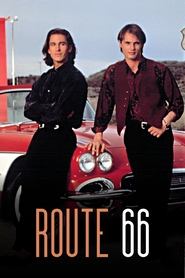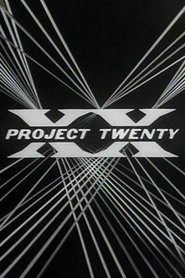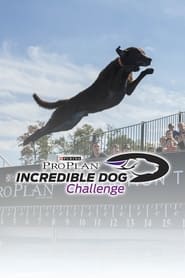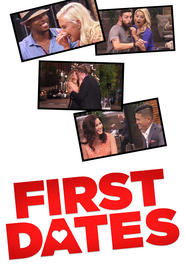Nbc TV Series - Page 73
-
It Takes Two
1969
It Takes Two
1969
It Takes Two is a game show in which contestants gave numerical answers to questions. The original program was created and produced by Ralph Andrews and aired on NBC from March 31, 1969 to July 31, 1970 at 10:00 AM Eastern. A second version, produced by Mark Phillips Philms & Telephision, aired on The Family Channel in 1997. Los Angeles Dodgers broadcaster Vin Scully hosted the NBC version with John Harlan as announcer and on-camera assistant. The 1997 version was hosted by Dick Clark. -
Twenty One
1956
star 8Twenty One is an American game show which aired in the late 1950s. While it included the most popular contestant of the quiz show era, it became notorious for being a rigged quiz show which nearly caused the demise of the entire genre in the wake of United States Senate investigations. The 1994 movie Quiz Show is based on these events. A new version aired in 2000 with Maury Povich hosting, lasting about five months on NBC. -
Route 66
1993
star 6Route 66 is a short-lived sequel to the 1960 television series of the same name. It aired on NBC in 1993 and was cancelled after only four episodes. -
Where the Girls Are
1968
Where the Girls Are
1968
Where the Girls Are was a music and comedy special that aired on NBC in 1968. Noel Harrison, fresh from his role in the NBC series Girl From U.N.C.L.E., hosted the hour-long special. Comic skits were performed by Professor Irwin Corey and Don Adams, who was starring in the NBC series Get Smart. Musical numbers were performed by The Association, Barbara McNair, Cher and The Byrds. The "Close-Up" for the program in the April 20–26, 1968 TV Guide also notes: "The goings-on include antic camerawork and a bevy of mini-clad beauties." Celanese Arnel was a major sponsor. The special was broadcast on Tuesday, April 23, 1968. It pre-empted the Jerry Lewis Show on NBC's network schedule. -
Project XX
1960
star 6Early NBC series showcasing compilation films - documentaries made from existing archival footage. Patterned on the successful Victory at Sea, it employed fast-paced editing, music, and narration. Concentrating on public affairs and public life, it steered clear of controversial subjects and enjoyed strong ratings, inspiring many competitors such as Air Power and The Twentieth Century. In later years, however, it would be criticized as superficial in comparison to "serious" documentary and current events programs. -
Winters
0000
Winters
0000
Winters is a light police drama pilot for NBC revolving around female detective Christie Winters, played by Famke Janssen, and her colleagues in Los Angeles. The pilot was created and written by House alums David Shore and Peter Blake. -
The Big Surprise
1955
star 6The Big Surprise is a television quiz show broadcast in the United States by NBC from October 8, 1955 to June 9, 1956 and from September 18, 1956 to April 2, 1957. It was hastily created by NBC in response to the overwhelming ratings success of The $64,000 Question, which had premiered on CBS in Summer 1955 and almost instantly became a smash hit. The Big Surprise offered a grand prize of $100,000. The series was originally hosted by game-show entrepreneur Jack Barry through March 3, 1956, after which he was replaced by journalist Mike Wallace for the rest of the run. -
50 Grand Slam
1976
50 Grand Slam
1976
50 Grand Slam is a game show from Ralph Andrews Productions that aired on NBC from October 4 to December 31, 1976. Tom Kennedy hosted the show, with John Harlan as the announcer. It premiered and ended on the same day as the show that preceded it on the NBC schedule, Stumpers!, which was hosted by Allen Ludden, who appeared at the beginning of the premiere to wish Kennedy luck. Name That Tune, also hosted by Kennedy, took over the time slot previously occupied by 50 Grand Slam on NBC the following Monday. -
People Will Talk
1963
People Will Talk
1963
People Will Talk was an American game show that aired on NBC from July 1 to December 27, 1963. The host was Dennis James, with Kenny Williams announcing. In 1964, packager Heatter-Quigley Productions revamped the program under the name The Celebrity Game, with host Carl Reiner at CBS Television City in Hollywood. -
It's Anybody's Guess
1977
star 10It's Anybody's Guess is an American game show broadcast on NBC from June 13 to September 30, 1977. Monty Hall hosted the show while his second-banana from Let's Make a Deal, Jay Stewart, was the announcer. It was produced by Stefan Hatos-Monty Hall Productions. -
The Hank McCune Show
1950
The Hank McCune Show
1950
The Hank McCune Show is an American television situation comedy. Filmed without a studio audience, the series is notable for being the first program to incorporate a laugh track. The series began as a local Los Angeles program in 1949. NBC placed it on its national primetime schedule at the start of the 1950-51 season. It debuted at 7:00pm Eastern Time on September 9 and was cancelled three months later. -
The Duke
1954
-
Queen for a Day
1945
star 4Queen for a Day was an American radio and television game show that helped to usher in American listeners' and viewers' fascination with big-prize giveaway shows. Queen for a Day originated on the Mutual Radio Network on April 30, 1945 in New York City before moving to Los Angeles a few months later, and running until 1957. The show then ran on NBC Television from 1956 to 1964. The series is considered a forerunner of modern-day "reality television". The show became popular enough that NBC increased its running time from 30 to 45 minutes to sell more commercials, at a then-premium rate of $4,000 per minute. -
Brains & Brawn
1958
Brains & Brawn
1958
Brains & Brawn is the name of two similar NBC game shows aired on Saturdays in 1958 and 1993 respectively. -
Reach for the Stars
1967
Reach for the Stars
1967
Reach for the Stars was an American game show which briefly aired on NBC weekday mornings at 10:00 beginning January 2, 1967 for a total of 65 episodes. The show was produced by Merv Griffin Productions at NBC's New York studios and was hosted by longtime broadcaster Bill Mazer. -
Surviving Earth
0000
Surviving Earth
0000
Meet the bizarre, amazing and breathtaking creatures and landscapes of a vibrant lost world; and discover how life not only survived during the cataclysmic events of this prehistoric era, but thrived. -
First Dates
2017
star 2.7A voyeuristic look at a variety of real first dates happening throughout one night at the same restaurant in Chicago. -
Snap Judgment
1967
Snap Judgment
1967
Snap Judgment is an American daytime game show hosted by Ed McMahon and announced by Johnny Olson which ran on NBC from April 11, 1967 to March 28, 1969 at 10:00 AM Eastern. The program was produced by Mark Goodson and Bill Todman. The series aired during an eight-year period in which the network aired a five-minute newscast at 10:25 AM; the exception during this time was from June 1964 to March 1965, when the slot had daytime repeats of the long-running sitcom Make Room For Daddy.





